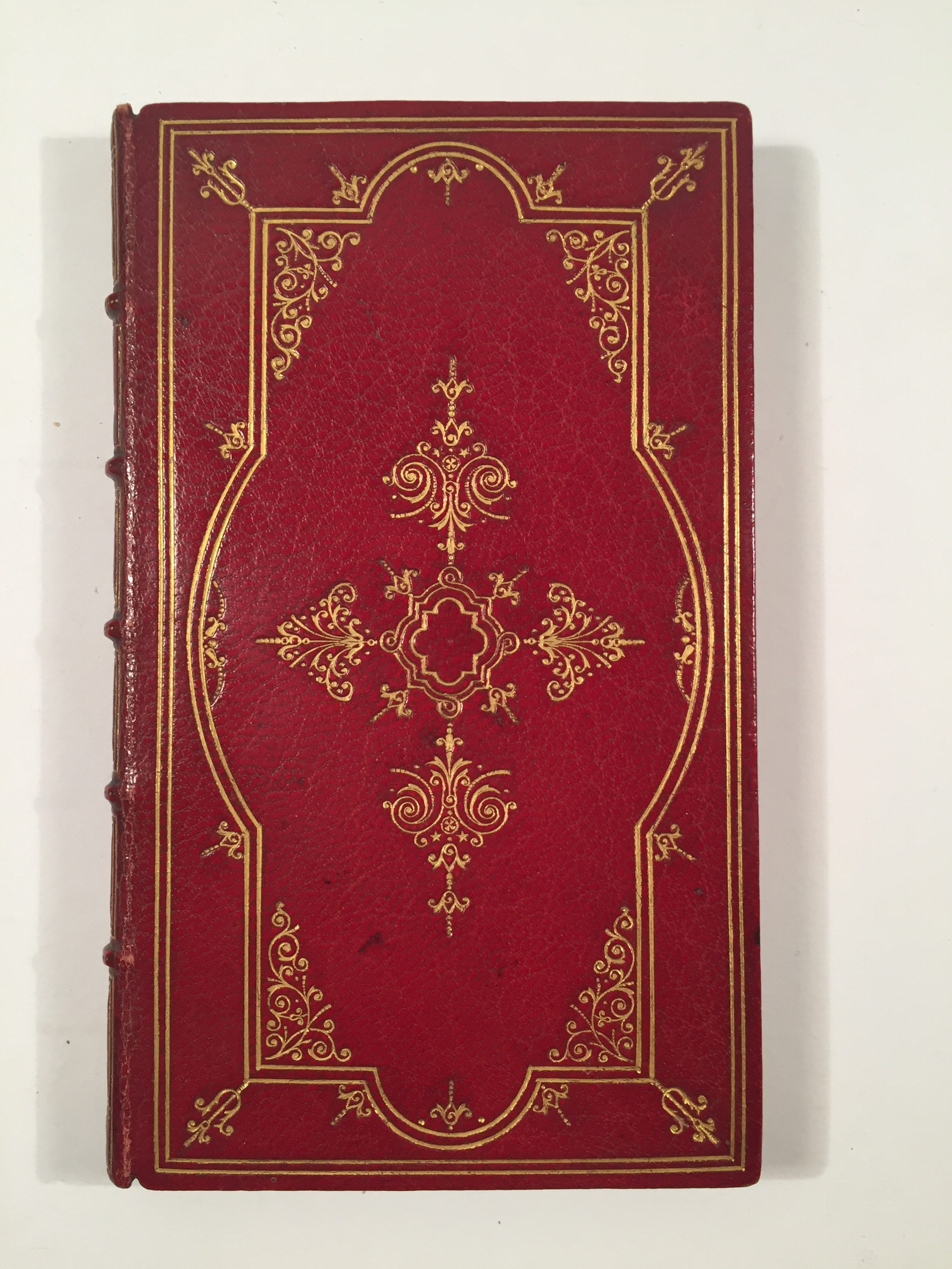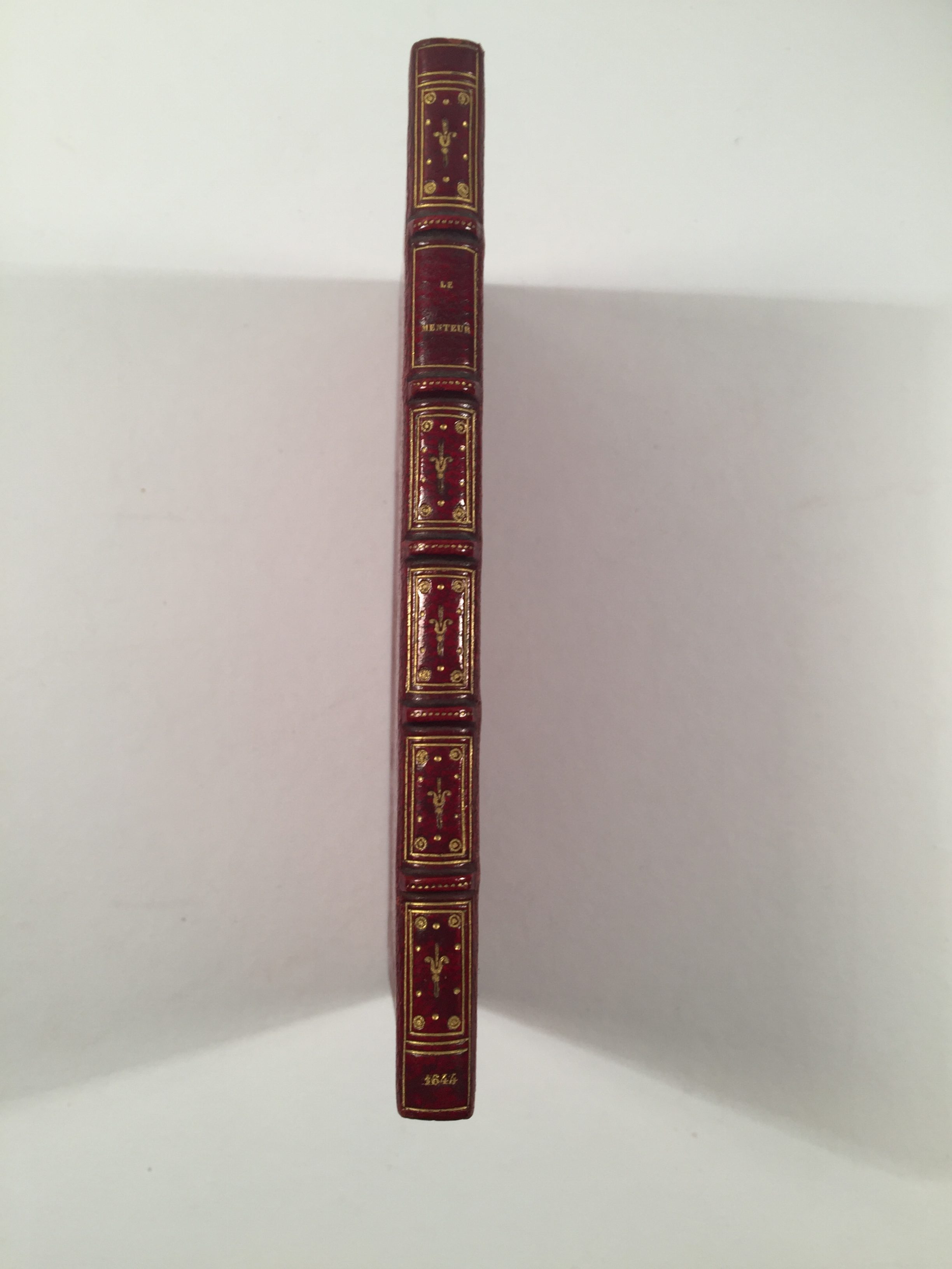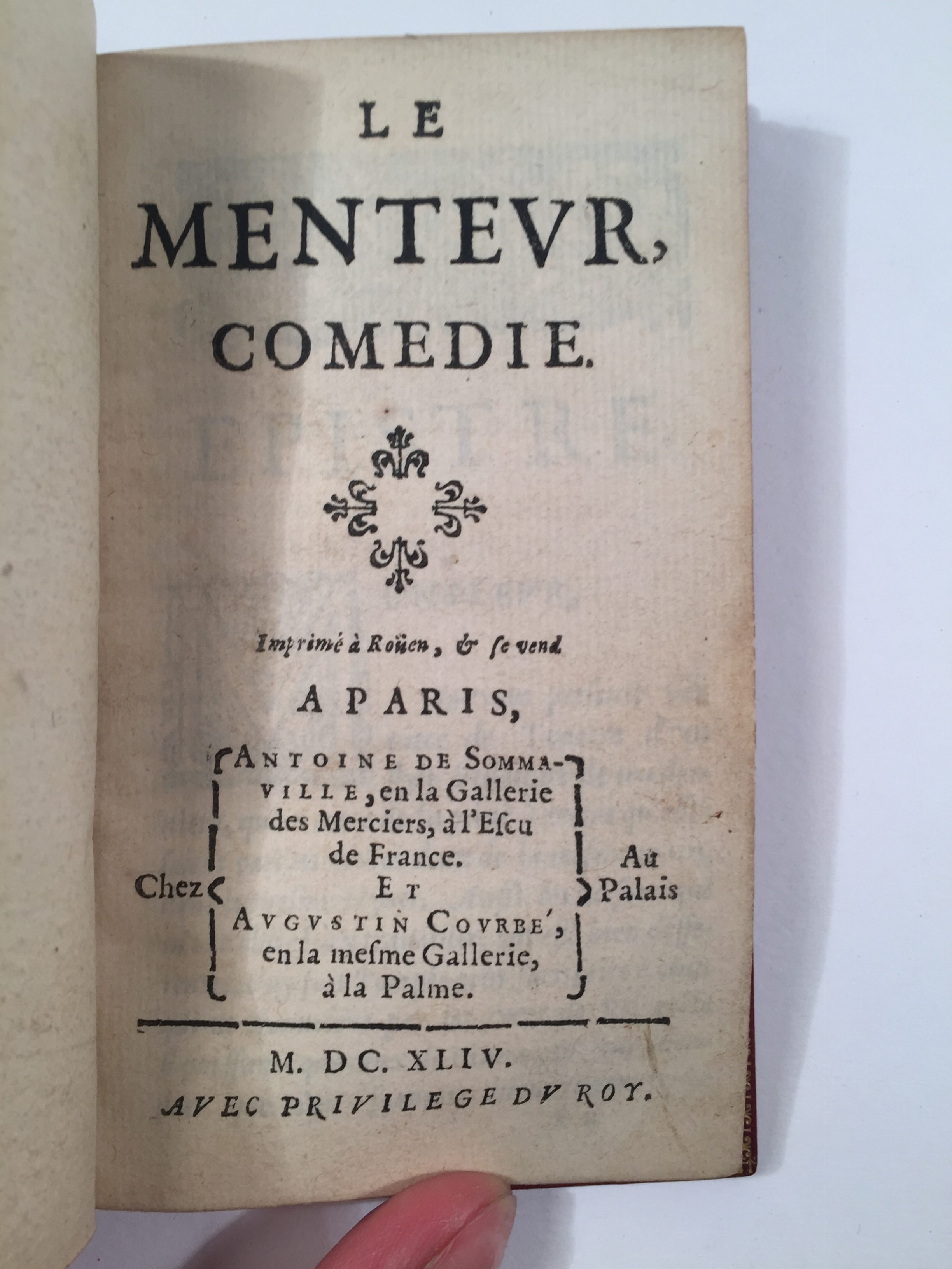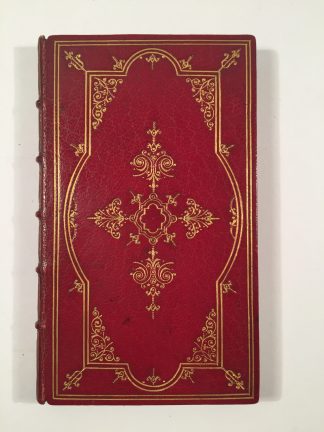CORNEILLE Pierre
Le Menteur
Rouen, et se vend à Paris, A. de Sommaville et A. Courbé, 1644£3,950.00
12mo. pp. [viii], 91 [i]. a4, A-G6, H4. Roman letter. Small typographical ornaments on title, grotesque and floriated woodcut initials and headpieces, typographical ornaments, ms. ex dono from Paul Festingiery to his cousin Paul Buffet dated 1903 on fly. Light age yellowing. A fine copy in beautiful French C19th red morocco by P.R. Reparlier in excellent imitation of a seventeenth century binding, those of Anne D’Autriche in particular, covers double ruled to a panel design, fleurons to outer corners, central panel with fine scrolled corner-pieces, large scroll work fleurons with pointillé tools around gilt oval at centre, spine with gilt ruled raised bands, double gilt ruled in compartments with small gilt fleurons, title lettered in gilt, edges gilt ruled, inner dentelles richly gilt, marble end-papers, a.e.g.
A very charming copy of the rare second edition, published very shortly after the first, of this wonderful play by Pierre Corneille, his comic chez-d’oeuvre and certainly one of the most influential on the next generation of playwrights in France, particularly Molière. It has been described as the first great work of comedy in French theatre. It is Corneille’s last Baroque comedy, which was performed for the first time in the Theatre du Marais in 1644, and was one of his major successes. Corneille reworked the play from the Spanish work ‘la Verdad sospechosa’ (the Supposed Truth) by Alarcon [1625], which he wrongly attributes, in his preface, to de Vega. He often successfully adapted Spanish works by Lope de Vega, or later, the great Spanish playwright Calderon de la Barca. The work has many autobiographic elements; just as Corneille left the law in provincial Rouen for the romantic life of an artist in Paris, so the young liar/lawyer Dorante leaves his legal studies in Poitiers for romance in the big city. Several verses from the play have become well known proverbs French such as ‘Le façon de donner vaut mieux que ce qu’on donne.’ or ‘Si quelqu’un l’entend mieux, je l’irai dire à Rome.’ His influence on the course of French play-writing can not be ignored. The same year Corneille wrote The Liar, a 21-year-old Parisian named Jean-Baptiste Poquelin founded his first theatre. When he later wrote his own plays (under the name Molière), he absorbed many of Corneille’s techniques to craft his hilarious and cutting satires on French society. Corneille’s comic subjects and style influenced not only Molière, but also his great successors Marivaux and Beaumarchais.
This second edition seems to be considerably rarer than the first, perhaps due to it pocket size; we can locate only one location in US libraries, at Harvard.
Not in BM STC Fr. C17th. Thcmerzine II p. 551. Picot, 36. Brunet II 285.In stock





